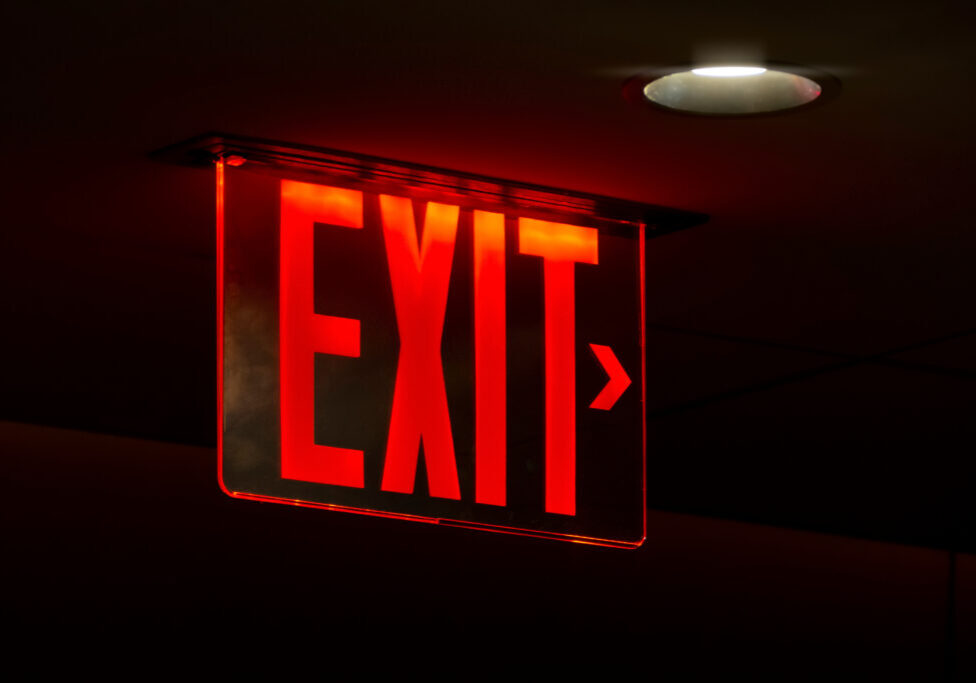Louisiana lost 84,000 people – more than the population of Lake Charles – between 2020 and 2023, as long-standing problems of poverty, poor educational attainment and environmental vulnerability are causing people to vote with their feet. LSU professor Robert Mann writes that the failure of state leaders to address these endemic issues is a combination of misplaced priorities and residents who have become too accustomed to finishing last:
I wonder if our leaders will ever realize that what really ails Louisiana is not its corporate tax rate or what business leaders consider excessive environmental regulations but, rather, our comical lack of ambition to excel in anything other than football or Mardi Gras? … Our insularity is killing us. We need new blood and new ideas. Instead, we are losing people. They are voting against Louisiana with their feet. And as they continue to head for the exits, our native-born percentage will only increase, and we will grow even more insular.
The Public Affairs Research Council’s Steven Procopio and Melinda Deslatte, in a guest column for the Times Picayune | Baton Rouge Advocate urge lawmakers to focus on tackling deep-rooted and critical problems the state faces, including a looming fiscal cliff:
Start preparing for the budget gap they face next year when a temporary state sales tax is scheduled to expire. General state tax collections are projected to decline by nearly $420 million in the 2025-26 budget year after the 0.45% sales tax ends in mid-2025. If lawmakers don’t intend to support a sales tax renewal next year, they’ll need to determine which programs Louisiana can afford without it or choose another way to raise revenue. Legislators should avoid budget gimmicks that prolong the shortfalls.
Children still face abhorrent conditions in adult jails
Last year a federal judge ordered Louisiana to move juvenile offenders out of the state’s maximum security adult prison in Angola and stop holding children in adult jails. But the state failed to comply with that order, and reports quickly surfaced that the Jackson Parish Jail where children were being held was not providing the education and other programs required by law. And things haven’t gotten better, according to recent documents filed in federal court that allege kids are still being exposed to dangerous, unsanitary conditions while being imprisoned close to adult inmates. The Appeal’s Elizabeth Weill-Greenberg reports:
Kids reported that they have also been housed in a dorm where staff maced them, shot them with pepper balls, and used “taser gloves” on them. The children said that when staff maced the dorm one day, the kids tried to “crawl up closer to the vents, attempting to find air,” and that young people with asthma could not breathe. On another occasion, staff allegedly maced the dorm, then took the kids outside, made them get on their knees with their hands tied behind their backs, and forced them to stay outside in the cold.
Anti-worker bills abound
Public sector unions, workers comp and laws ensuring child workers receive lunch breaks are in the crosshairs of Republican lawmakers during the legislative session. The Times Picayune | Baton Rouge Advocate’s James Finn breaks down a package of bills that lawmakers are pushing that favor corporations over workers and the lobbying advantage these special interests hold at the Capitol.
A cluster of at least 15 proposed laws takes aim at public-sector unions’ ability to bargain with employers, the system for compensating workers sidelined by injury and a requirement that child laborers must receive lunch breaks. … “The companies have plenty of representation, the insurance associations have plenty,” said Louis Reine, head of the Louisiana AFL-CIO, a labor union representing public and private-sector workers that backed Democrat Shawn Wilson in last year’s gubernatorial race. “When it comes to the average person who wakes up, goes to work every day and goes home, there’s not a lot of people up there vouching for us.”
A holistic approach to improving health
Thanks to the 2016 expansion of Medicaid eligibility, Louisiana’s uninsured rate is now lower than the national average. But Louisiana continues to fare poorly on national health rankings, as good health is about much more than having access to doctors and hospitals. The Times Picayune | Baton Rouge Advocate’s Alena Maschke reports on a campaign by the Louisiana Center for Health Equity to improve Louisiana’s rankings by focusing on issues like poverty and trauma that have profound effects on health outcomes.
Eating healthy meals, spending time as a family, going to regular medical appointments — many of the basic steps to maintaining a person’s health are impossible for someone earning the federal minimum wage, (LCHE’s Alma) Stewart argued. … While many other states have minimum wage requirements far above the federal level, the signs in Louisiana are not pointing in the direction of change on that front. Several legislative attempts to raise the minimum wage have failed in recent years, including a proposal last year that would have gradually raised the state minimum to $14 by 2028, which would still place it below current state minimum wages in several states in the West and Northeast.
Number of the Day
84% – Percentage of students currently enrolled in higher education who say the government should have some responsibility to help pay student loans. (Source: The Harris Poll via Axios)
